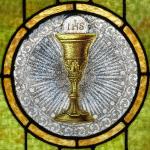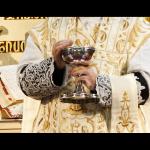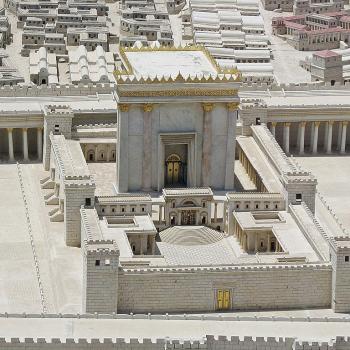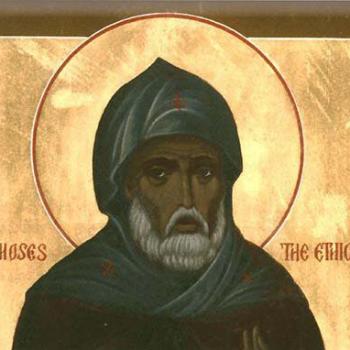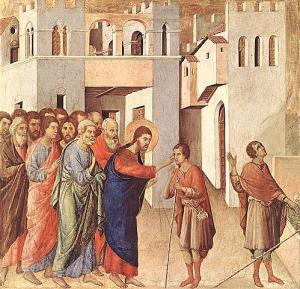
When Jesus met with and healed a man who was blind since birth, Jesus revealed that the man was not blind from something he did, nor from something which his parents did, meaning, he was not being punished for the wrong someone had done:
As he passed by, he saw a man blind from his birth. And his disciples asked him, “Rabbi, who sinned, this man or his parents, that he was born blind?” Jesus answered, “It was not that this man sinned, or his parents, but that the works of God might be made manifest in him. We must work the works of him who sent me, while it is day; night comes, when no one can work. As long as I am in the world, I am the light of the world” (Jn. 9:1-5 RSV).
It was just natural processes which led to the man’s blindness, processes which no one controlled, which is why no one was culpable for his blindness. What confuses many people with what happened in this encounter is the way Jesus said that the man was blind so that God’s greatness could be made manifest when he was healed. Is he suggesting that God blinded the man so that Jesus could show off his healing powers, and in doing so, have God glorified? No. God does not act in that way. God is not vainglorious. How then are we to understand those words? Perhaps that God is always glorified when God takes people where they are at and lifts them up, that is, when God makes people better, especially when God perfects nature with grace. God allows nature, and those with free will, to develop themselves, to find the limits they have, so that when God comes, and provides deifying grace, they can rejoice in what is being offered to supplement their own natural glory. That is, God shares the divine glory with creation, and when it is accepted, God is glorified, not because God changes and receives glory which God did not have, but rather, because creation moves beyond itself and begins to participate in the divine life and the transcendent glory it does not have in and of itself.
God does not automatically provide such perfection to the world because God also wants nature to have its own domain, to let what happens in the natural world to have its own semi-autonomy (as there is no complete independence from God), so that it can find goodness in what it has been given and show the goodness which it can produce from it. But whatever good nature is able to produce, it is limited, and that means, many of the goods it establishes can be and will be made better when it is taken in by God and granted a chance to participate in God’s glory. Thus, when the limits of nature are revealed, those who want more can receive it from God, and in that reception, they transcend themselves, revealing the glory of God in and through they do with that self-transcendence.
Physically, then, the man born blind was healed: God’s healing grace made him greater than what he had been all his life up to that point. All grace is connected to the divine order, and therefore, God’s glory. Every time we share in God’s glory, we find it brings with it a kind of enlightenment, allowing us to perceive even more of the incomprehensible truth of God. To be sure, we must understand not all such enlightenment will be the same, because what is being shared, and the condition of the person receiving what is shared, differs from case to case, so that some will be enlightened more, and others enlightened less. No matter how much someone receives, they will find their spiritual perceptions enhanced, and through that enhancement, it will be as if they were going from a kind of spiritual blindness to seeing things for the first time. And so, in a way, everyone is spiritually blind at birth, and Jesus comes to them, willing to heal them of that spiritual blindness, even as he healed the man born blind:
Jesus heard that they had cast him out, and having found him he said, “Do you believe in the Son of man?” He answered, “And who is he, sir, that I may believe in him?” Jesus said to him, “You have seen him, and it is he who speaks to you.” He said, “Lord, I believe”; and he worshiped him. Jesus said, “For judgment I came into this world, that those who do not see may see, and that those who see may become blind.” (Jn. 9:35-38 RSV).
The blind man was led to see, not only physically, but spiritually. While we might not be born physically blind, we are born with some level of spiritual blindness, and we often make things worse through our actions, as our sins end up clouding our spiritual perceptions even more. All of that can and will be overcome by Jesus. God is glorified in and through us in our spiritual healing, just as much as God is glorified in the healing of the man born blind. The glorification is done not for the sake of God, but ours. Once we have been given such grace, and with it, a better spiritual perception, we should act on it, so that God can and will be further glorified in us through the good works which we do; if we are unwilling to do so, we risk cutting ourselves off from grace, and perhaps, becoming spiritually blind once again.
Stay in touch! Like A Little Bit of Nothing on Facebook.
If you liked what you read, please consider sharing it with your friends and family!
N.B.: While I read comments to moderate them, I rarely respond to them. If I don’t respond to your comment directly, don’t assume I am unthankful for it. I appreciate it. But I want readers to feel free to ask questions, and hopefully, dialogue with each other. I have shared what I wanted to say, though some responses will get a brief reply by me, or, if I find it interesting and something I can engage fully, as the foundation for another post. I have had many posts inspired or improved upon thanks to my readers.


